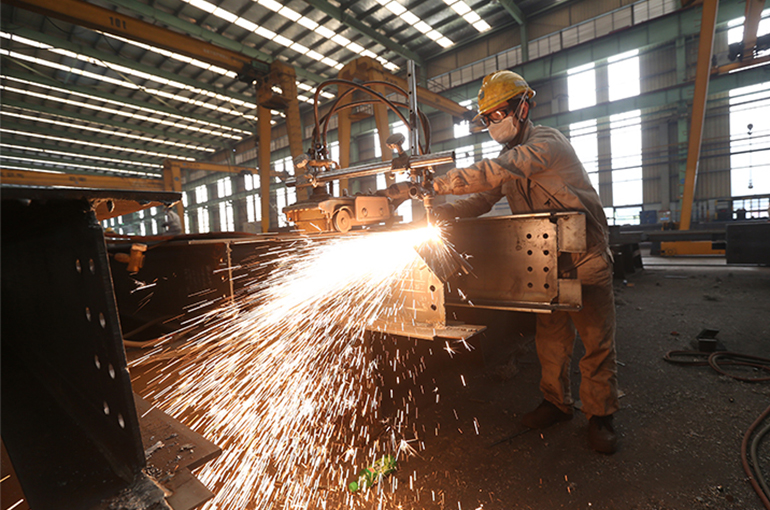 Chinese Steel, Aluminum Exporters Are Threatened by New US Tariffs, Experts Say
Chinese Steel, Aluminum Exporters Are Threatened by New US Tariffs, Experts Say(Yicai) July 15 -- Chinese exporters of steel and aluminum are expected to be impacted by the additional tariffs on the metals introduced by the United States in conjunction with the Mexican government, according to industry experts.
Chinese companies investing in steel and aluminum production and smelting projects in Mexico need to pay attention to these new US customs' conditions to avoid additional tariffs on steel and aluminum imported from Mexico, said Yan Guangpu, an anti-dumping financial expert at Guangzhou-based law consultancy firm Daoyue.
On July 10, the US issued two proclamations to include some steel and aluminum articles imported from Mexico into Section 232 of the Trade Expansion Act. According to the proclamations, the US will levy a 25 percent tariff on imported steel not melted and poured in Mexico, the US, and Canada and a 10 percent tariff on aluminum that is cast or smelted in Belarus, China, Iran, and Russia that arrives in the US through Mexico, effective immediately.
Moreover, the US imposed additional tariffs on steel and aluminum products directly imported from China on April 17.
The Mexican government had asked local importers earlier this year to provide more information about the products entering Mexico, including the country where they were melted, poured, and substantially transformed.
According to the new regulations, companies need to use raw materials from Mexican, US, or Canadian steel mills to make steel products in Mexico and raw materials from regions other than Belarus, China, Iran, and Russia to make aluminum products in Mexico, Yan explained.
The US may also impose additional tariffs on steel and aluminum derivatives imported from Mexico that are not included in the listed categories, especially if the steel and aluminum import volume continues to increase, Yan noted.
"The steel and aluminum derivatives to be levied on tariffs are not limited to the listed categories, so the measures do leave room for tariffs on other steel and aluminum products," Yan added. "Therefore, Chinese steel and aluminum products manufactured in Mexico may also face uncertainties."
When asked if Chinese companies using China-made steel parts to manufacture low-speed vehicles in Mexico will also be required to meet the new Section 232 requirements, Yan said he does not think so.
Chinese firms engaged in the Mexican industry can apply for anti-circumvent and anti-dumping investigations against Mexico to be able to export their products to the US and avoid Section 232, Yan pointed out.
In the future, the US will continue to use trade measures to block Chinese firms from expanding overseas, Yan noted, adding that it seems the US has also started joining hands with other parties to do so.
Editors: Zhang Yushuo, Futura Costaglione